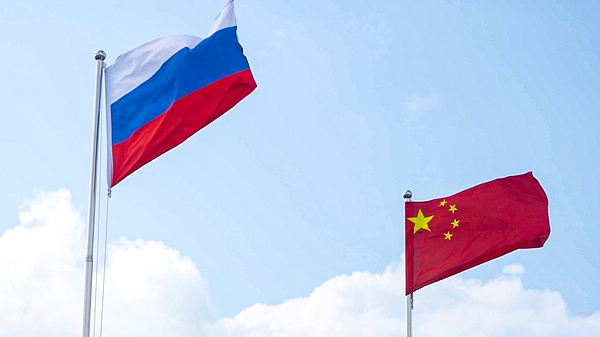In a world of profound shifts unseen in a century, Chinese Foreign Minister Wang Yi and Russian Foreign Minister Sergey Lavrov met this Thursday to reinforce a partnership that both see as a stabilising force on the global stage.
Wang Yi, also a member of the Political Bureau of the Communist Party of China Central Committee, highlighted how their heads of state have 'maintained strategic communication, providing steady and long-term guidance for China-Russia relations' even as international dynamics evolve.
Noting their role as dialogue partners of the Association of Southeast Asian Nations, Wang urged both countries to 'strengthen strategic coordination on East Asian cooperation platforms, support an ASEAN-centered, open and inclusive regional cooperation architecture, and uphold the right direction of the East Asia Summit and the ASEAN Regional Forum.'
Lavrov echoed the sentiment, affirming that close coordination underlines the 'global and strategic significance of the bilateral relationship' and that Moscow and Beijing remain vigilant against efforts by certain major powers to sow division in the Asia-Pacific.
On the Shanghai Cooperation Organization front, Russia pledged full support as China assumes the rotating presidency, with plans for high-level exchanges and deeper cooperation across BRICS and other frameworks.
The two ministers also tackled Middle East issues, exchanging views on the Iranian nuclear question. Wang Yi stressed that 'force cannot bring peace, pressure does not solve problems, and dialogue and negotiation are the fundamental path forward.' He reaffirmed China’s respect for Iran’s commitment not to seek nuclear weapons and its right under the Treaty on the Non-Proliferation of Nuclear Weapons to peaceful nuclear energy.
As permanent members of the UN Security Council and key participants in the Joint Comprehensive Plan of Action, Wang said China and Russia should jointly uphold the international non-proliferation regime and push for early peace and stability in the Middle East.
They also exchanged perspectives on the Palestinian-Israeli conflict and other regional flashpoints, underscoring a shared view that diplomatic engagement must lead the way.
With both sides vowing deeper strategic coordination, the meeting sends ripples through regional and global arenas, signalling that Beijing and Moscow see their partnership as a key pillar for navigating an era of uncertainty.
Reference(s):
Wang Yi: China willing to promote strategic coordination with Russia
cgtn.com




